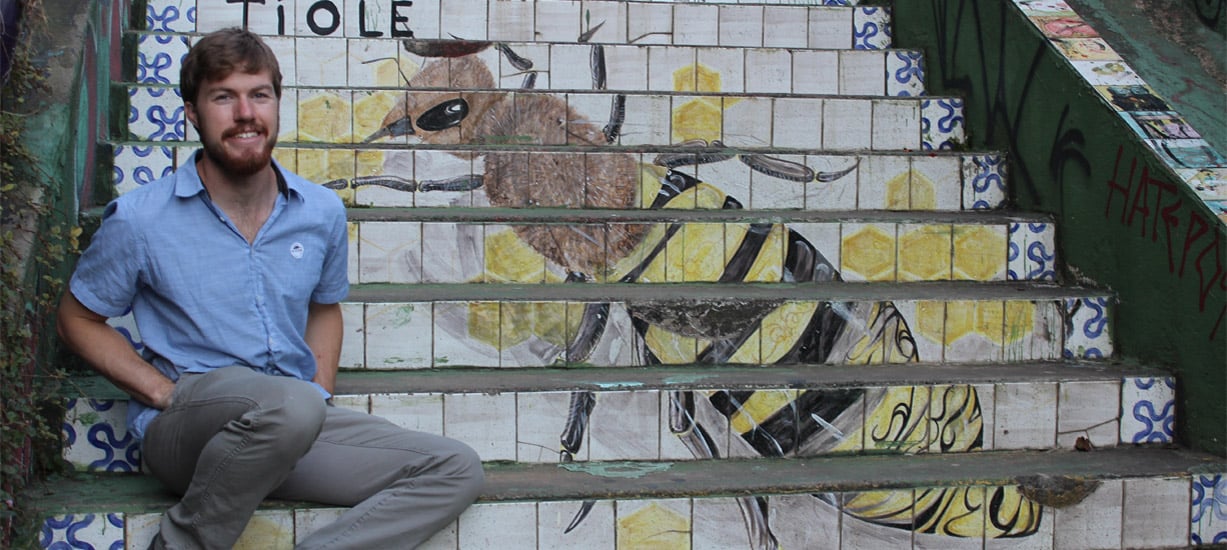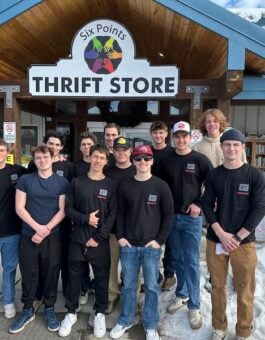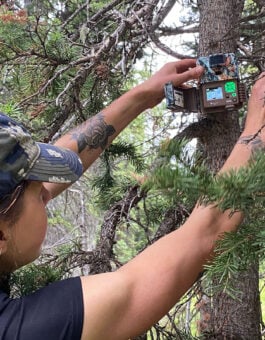When Tim DeLory ’17 first came to campus, he didn’t realize the world of insects could be so big.
“I first learned about social insects, including bees, in my undergraduate entomology class,” DeLory said. “My professor, Kevin Alexander, PhD., explained some of the current theories of social evolution in insects and showed us some of the different species of bees with variable sociality. This piqued my interest in social insects.”
Learning about the secret lives of bees was not the initial draw to campus for DeLory, who graduated with degrees in Mathematics and Biology.
“I was interested in the extracurriculars at Western. They had the major I was originally interested in and immediate access to a range of outdoor activities,” he said.
While he was a student at Western, DeLory had the opportunity to attend the National Science Foundation’s summer Research Experience for Undergraduates (REU) at the University of North Carolina at Greensboro. While there, he began his study of the recombination rates of honey bees. This program experience led to the research that was recently published in “Insectes Sociaux,” the International Journal for the Study of Social Arthropods.
The research he helped conduct that summer had a lasting impact.
“After [the] summer REU…I knew I wanted to make studying social insects my career path and to use bioinformatics approaches to do this,” he said.
While the experience in North Carolina inspired his long-term career goals, DeLory is insistent he would not be where he is today without the encouragement and guidance of Western’s faculty members.
“The faculty is awesome at Western,” DeLory said. “That can’t be overemphasized. I don’t think I would have had the educational opportunities that I had at Western at another state school.”
For DeLory, those opportunities include guidance and support outside of the classroom from faculty member Jonathan Coop, PhD.
“Dr. Coop was a true mentor for me, inside and outside of the classroom. Dr. Coop was always supportive of the decisions I made. It took me a while to figure things out in my life, which involved leaving Western for a year and a half, which he understood,” DeLory said.
When DeLory returned to campus, he delved into the world of academic research, thanks in part to Coop’s encouragement.
“After I came back to Western, Dr. Coop invited me to work on a fire ecology project and really helped me to develop as an aspiring scientist,” DeLory said. “The fire ecology project was so much fun because it was interdisciplinary and incorporated several areas of expertise. I was able to apply my coding and math background on a simulation for the project. I felt treated as a colleague on that project, which was really validating for me that early on in my research career.”
DeLory is currently pursuing a PhD. in Biology at Utah State University where he is using his undergraduate research on bees as a precursor to his dissertation work. He believes his time at Western prepared him to enter his preferred field.
“The broad education that you receive in the early years at Western builds wonderful capacities for learning later on in your respective field. It also helps … approach modern problems in the workplace, which are increasingly interdisciplinary,” he said.
For DeLory the foundational education and support he received while at Western continue to serve as an example of what to look for as he moves forward in his career.
“Having a reference point for what a healthy educational experience looks like is a great help to me as I am now teaching labs as a teaching assistant,” he said.


